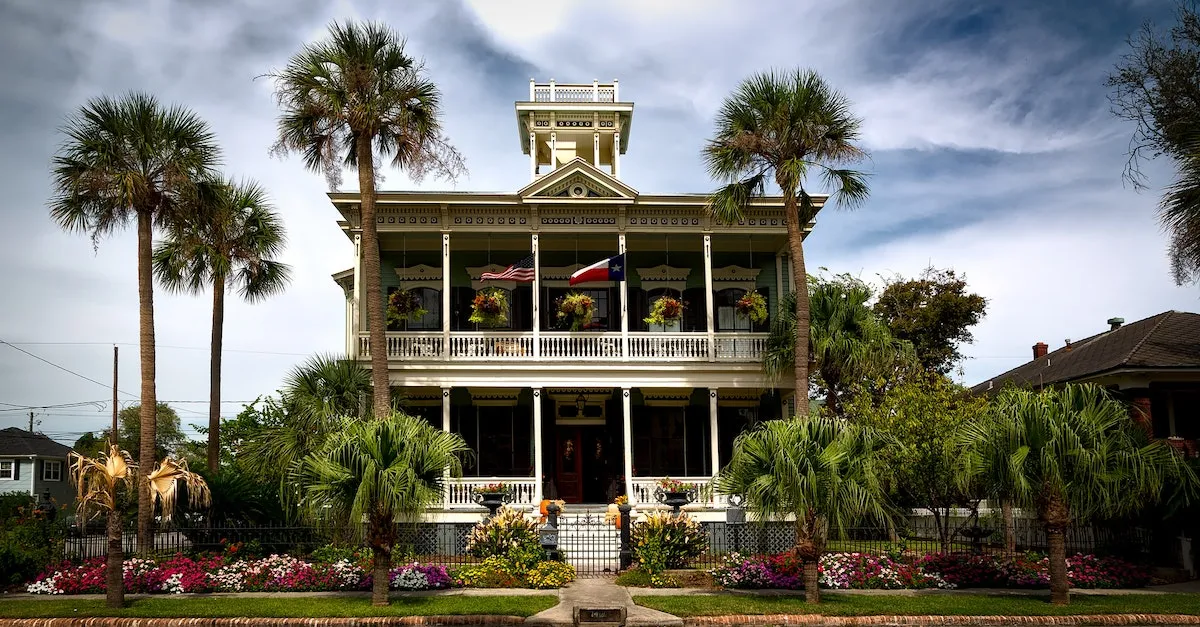Is Texas A Good Place To Live?
Texas is known for its wide-open spaces, cowboy culture, barbecue, and independent spirit. For many people considering a move, the question arises: is Texas a good place to live? If you’re short on time, here’s a quick answer to your question: Texas offers a low cost of living, no state income tax, and a strong job market, especially in major cities like Austin, Dallas and Houston. However, the climate, politics, and distance from other parts of the U.S. may make it less desirable for some.
In this comprehensive guide, we’ll take an in-depth look at the pros and cons of living in Texas to help you decide if it’s the right fit for you and your family.
The Economy and Job Market in Texas
When it comes to the economy and job market, Texas shines as one of the top states in the United States. With a diverse range of industries and a business-friendly environment, it’s no wonder that people are flocking to the Lone Star State for employment opportunities.
Booming metropolitan areas
One of the key factors contributing to the strong economy in Texas is its booming metropolitan areas. Cities like Dallas, Houston, and Austin have experienced significant growth in recent years, attracting businesses and creating job opportunities in various sectors.
These cities offer a vibrant mix of industries, including finance, healthcare, education, and manufacturing, providing a wide range of employment options for residents.
Oil and gas industry
The oil and gas industry has long been a pillar of the Texas economy. With vast reserves and a well-established infrastructure, Texas is a leader in oil and gas production in the United States. This industry not only provides a significant number of jobs but also contributes to the state’s overall economic growth.
The oil and gas industry has a ripple effect on other sectors, such as transportation, construction, and hospitality, creating a multiplier effect that benefits the entire state.
Growing tech sector
In recent years, Texas has emerged as a major player in the tech industry. Cities like Austin, often referred to as the “Silicon Hills,” have seen a surge in tech startups and established companies opening offices in the area.
The presence of these tech giants has not only created job opportunities for tech professionals but has also fostered a culture of innovation and entrepreneurship. With a supportive ecosystem and access to top talent, Texas is becoming a hub for technological advancements and attracting tech-savvy individuals from all over the country.
According to a report by the Bureau of Labor Statistics, Texas consistently outperforms the national average when it comes to job growth and employment rates. The state’s low cost of living and absence of state income tax also make it an attractive destination for individuals looking to stretch their dollars and enjoy a higher quality of life.
Cost of Living in Texas
When considering whether Texas is a good place to live, one of the key factors to take into account is the cost of living. Fortunately, Texas offers several advantages in terms of affordability.
No state income tax
One of the biggest perks of living in Texas is the absence of state income tax. This means that residents get to keep more of their hard-earned money. While federal income tax is still applicable, not having to pay state income tax can significantly impact one’s overall financial situation.
This is especially beneficial for individuals and families with higher incomes.
Lower housing costs
Another aspect that makes Texas an attractive place to live is its relatively lower housing costs compared to many other states. Whether you’re looking to rent or buy a home, Texas offers a range of affordable options. The state’s vast land and housing availability contribute to its affordability.
According to recent statistics, the average home price in Texas is lower than the national average, making it a great place for first-time homebuyers or those looking to downsize.
Cheap utilities and gas
Aside from housing costs, utilities and gas prices in Texas are generally cheaper compared to other parts of the country. This can have a positive impact on monthly expenses, allowing residents to save more or allocate their funds to other areas of their lives.
Whether it’s electricity, water, or natural gas, Texans enjoy relatively lower rates. Additionally, due to the state’s vast oil and gas reserves, gasoline prices tend to be more affordable, making commuting and traveling more budget-friendly.
The Climate and Geography of Texas
Texas, known for its vast size and diverse landscapes, offers a unique blend of climates and geographical features. Whether you’re a fan of warm weather or prefer a more varied climate, Texas has something to offer for everyone.
Hot summers
One of the defining characteristics of Texas is its scorching summers. The state experiences high temperatures, with some regions reaching triple-digit figures. The combination of heat and humidity can make summers quite intense.
However, if you enjoy long days of sunshine and don’t mind the heat, Texas summers can be a great time to explore outdoor activities like swimming, hiking, and barbecues with friends and family.
Risk of extreme weather events
Texas is also known for its susceptibility to extreme weather events such as hurricanes, tornadoes, and severe thunderstorms. Coastal areas are particularly vulnerable to hurricanes, while tornadoes are more common in the central and northern parts of the state.
It’s important to stay informed about weather conditions and have a plan in place in case of emergencies. Despite the potential risks, many Texans have developed resilient communities that come together in times of crisis.
Diverse geographical regions
Texas boasts a wide range of geographical regions, each with its own unique characteristics. From the rolling plains of West Texas to the rugged mountains of the Trans-Pecos region, and from the piney woods of East Texas to the picturesque Hill Country, there’s something for everyone.
The state is also home to stunning natural features such as the Big Bend National Park, Palo Duro Canyon, and the Gulf Coast beaches. Whether you prefer hiking, fishing, or simply enjoying the beauty of nature, Texas has it all.
For more information on the climate and geography of Texas, you can visit the Texas Parks and Wildlife Department website or the National Weather Service website.
Education in Texas
Public school system overview
When it comes to education, Texas offers a wide range of options for residents. The state has a robust public school system that serves millions of students across the state. The Texas Education Agency (TEA) oversees the public school system and ensures that students receive a quality education.
The public school system in Texas is comprised of thousands of schools, including elementary, middle, and high schools. These schools offer a diverse range of programs and extracurricular activities to cater to the needs and interests of students.
Additionally, Texas has implemented rigorous academic standards to ensure that students are well-prepared for college and career success.
It is important to note that the quality of public schools in Texas can vary depending on the district and individual school. Some districts have high-performing schools with excellent resources and dedicated teachers, while others may face challenges in terms of funding and student performance.
Parents should research and consider the specific school district and individual schools when choosing a place to live in Texas.
Higher education options
When it comes to higher education, Texas is home to numerous prestigious colleges and universities. The state has a diverse higher education system that offers a wide range of programs and opportunities for students.
One of the most well-known institutions in Texas is the University of Texas at Austin. It is consistently ranked among the top public universities in the country and offers a wide range of undergraduate and graduate programs.
Other notable universities in Texas include Texas A&M University, Rice University, and the University of Houston.
In addition to these larger universities, Texas also has a strong community college system. Community colleges provide students with affordable options for obtaining a higher education degree or certificate.
These institutions often have transfer agreements with four-year universities, allowing students to easily transition into a bachelor’s degree program.
Furthermore, Texas is known for its technical and vocational schools, which provide specialized training in fields such as nursing, automotive technology, and culinary arts. These schools offer hands-on learning experiences and prepare students for specific careers.
For more information on public schools in Texas, you can visit the official website of the Texas Education Agency: https://tea.texas.gov/
Lifestyle and Culture in Texas
Friendly, outgoing people
One of the defining characteristics of Texans is their friendly and outgoing nature. Texans are known for their warm hospitality and welcoming attitude towards others. Whether you’re a native Texan or a newcomer, you’ll often find yourself greeted with a smile and a friendly conversation.
The sense of community is strong in Texas, and people are always willing to lend a helping hand when needed. This friendly atmosphere creates a positive and welcoming environment for residents, making Texas a great place to live.
Strong state pride
Texas is a state that takes pride in its unique identity. Texans have a strong sense of state pride and are proud to call themselves Texans. From the iconic Lone Star flag to the saying “Everything is bigger in Texas,” the state’s identity is deeply rooted in its history and culture.
This sense of pride is not just limited to native Texans; even those who have moved to Texas often find themselves embracing the state’s culture and becoming proud Texans themselves. This strong state pride fosters a sense of unity and belonging among residents.
Love of sports and the outdoors
Texas is a sports-loving state, with a deep passion for football, baseball, and basketball. Friday night lights illuminate the football fields across the state, as high school football games become the centerpiece of many communities. In addition to sports, Texans also have a love for the outdoors.
With its vast landscapes, Texas offers a variety of outdoor activities such as hiking, fishing, and camping. The warm climate allows for year-round outdoor adventures, making it an ideal place for nature enthusiasts and sports lovers alike.
Influence of Mexican culture in food and music
Texas shares a border with Mexico, and the influence of Mexican culture can be seen and felt throughout the state. One area where this influence is particularly evident is in the food. Tex-Mex cuisine, a fusion of Mexican and American flavors, is a staple in Texas.
From mouthwatering tacos and enchiladas to flavorful salsas and guacamole, Tex-Mex cuisine is loved by residents and visitors alike. Along with the food, Texas is also known for its vibrant music scene, with genres such as Tejano and Conjunto being deeply rooted in Mexican culture.
The combination of Mexican and American influences creates a unique and diverse cultural experience in Texas.
Conclusion
In the end, whether or not Texas is a good fit comes down to your priorities and preferences. The state offers a strong job market and low cost of living, but the climate, culture, and politics may not suit everyone’s tastes.
By weighing the pros and cons, you can determine if the Lone Star State aligns with your lifestyle, career, and family needs. Texas offers a unique culture and environment that many people love to call home.








